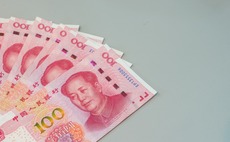
Qianhai offers RMB funds fast track

Renminbi-denominated private equity funds will get special dispensation to raise capital in Hong Kong through a new pilot project in Shenzhen. As ever, the devil is in the detail, which has yet to be fully explained
The growth of Hong Kong's renminbi pool has been remarkable. Individual banking services in Chinese currency have been available for more than eight years, but the liberalization drive gained momentum in the latter half of that period. Hong Kong witnessed the rollout of renminbi bonds and trade finance facilities, while local investors treated the currency as a means of leveraging appreciation against the US dollar.
Chinese currency deposits in the territory reached RMB63 billion ($9 billion) in 2009. As of May, the total stood at RMB670 billion. In terms of Hong Kong's wider banking industry, the renminbi pool remains relatively small and illiquid, despite its rapid growth.
The latest initiative to internationalize the renminbi lies about one hour's drive from Hong Kong in Qianhai, a development zone in southern Shenzhen that has been designated a laboratory for financial innovation. Capital will flow more freely across the border, and this includes allowing Qianhai-registered private equity firms raise renminbi-denominated funds in Hong Kong.
Suddenly, those RMB670 billion in deposits have become a prime target for mainland GPs keen to access a wider array of potential investors. But are they a realistic target?
Dean Moroz, Hong Kong-based legal counsel at Ashurst, says no. "I would not anticipate this being a major development in relation to renminbi funds," he tells AVCJ. "The pool of investors from whom renminbi can be raised seems to be limited to Hong Kong and I do not expect such funds to be treated as wholly domestic funds in the coming 5-7 years."
Small LP Universe
Officially announced in 2010 as the Qianhai Shenzhen-Hong Kong Modern Service Industry Cooperation Zone, the region will foster the development of financial services, logistics and information technology by attracting Hong Kong companies. In addition to raising renminbi capital in Hong Kong, those that set up shop in Qianhai can expect tax breaks and permission to issue local currency bonds.
The details have yet to be finalized, but a group of private equity players including The Blackstone Group and KKR have reportedly held preliminary talks with government authorities. In July, John Zhao, CEO of Hony Capital, told media that the company might raise its next renminbi-denominated fund in Hong Kong via the Qianhai program.
Hong Kong's geographical and cultural proximity to Shenzhen, not to mention the established commercial ties between the two cities, is likely to offer comfort to GPs and LPs. However, this doesn't necessarily mean Hong Kong investors will back mainland managers.
Firstly, the high net worth individuals (HNWIs) that are behind the rise of renminbi funds are far fewer in Hong Kong than mainland China. According to the most recent edition of the Capgemini-Merrill Lynch Asia Pacific Wealth Report, Hong Kong had 511 people with investible assets in excess of $1 million in 2010; China had 2,657. Secondly, Hong Kong's HNWIs are more sophisticated and have a much wider - and international - choice of investment options than their mainland counterparts. It is not purely a case of PE, property equities or bank deposits.
It is worth noting that the traditional sources of private capital, institutional investors such as insurers, pension funds and endowments, are also limited in Hong Kong. Most financial institutions are subsidiaries of overseas entities and fund managers are skeptical of how much renminbi they could raise from local institutions.
"It really depends on how the policy is to be implemented. If the policy allows fund-of-funds to convert capital raised outside Hong Kong into renminbi and then invest into local funds, it will open up a lot of opportunities," says Brooke Zhou, executive director of LGT Capital Partners. "If we are just allowed to raise offshore renminbi from local Hong Kong investors, it will be a much smaller universe."
Another issue that has still to be resolved is whether private equity funds registered in Qianhai qualify for local treatment. Earlier this year, responding to an inquiry regarding The Blackstone Group's Shanghai-based vehicle, the National Development and Reform Commission said that foreign-invested renminbi funds would not be able to circuit the regulatory bureaucracy that slows down transaction approvals and restrictions on target investment areas that apply to US dollar vehicles. So what if the capital comes from Hong Kong via Qianhai in renminbi?
Local treatment?
According to a source close to the Qianhai government, the objective of the program is similar to that of Shanghai's Qualified Foreign Limited Partnerships (QFLP) scheme: encouraging easier currency conversion, nothing more. Further details are expected to be announced towards the end of the year, but any offshore renminbi from Hong Kong is likely to be considered overseas capital.
"There are two separate issues here: foreign direct investment restrictions on foreign-invested private equity funds and foreign exchange control on such funds," says Sean Tai, a Shanghai-based partner at Paul Hastings. "I expect funds registered in Qianhai will still be categorized as foreign-invested even if they are allowed to accept renminbichanneled from Hong Kong. As a result, GPs may sometimes only target local investors to enjoy domestic treatment."
Despite these potential limitations, financial innovation is just one aspect of Qianhai, which the Beijing wants to turn into a global services center by 2020. Private equity firms with a long-term perspective might therefore see the merits of establishing strategic partnerships. At 15 square kilometers, Qianhai is 12 times the size of Hong Kong's central district, so local treatment for investments within this zone, if not the whole country, could count for a lot.
"Much like the QFLP scheme, Qianhai may mostly benefit a very small segment of foreign GPs who have good relations with local government and are the most prominent and sizeable among their peers," says Ashurst'sMoroz. "These foreign players might have learnt a lesson in Shanghai, but that doesn't stop them from searching for new opportunities."
Latest News
Asian GPs slow implementation of ESG policies - survey
Asia-based private equity firms are assigning more dedicated resources to environment, social, and governance (ESG) programmes, but policy changes have slowed in the past 12 months, in part due to concerns raised internally and by LPs, according to a...
Singapore fintech start-up LXA gets $10m seed round
New Enterprise Associates (NEA) has led a USD 10m seed round for Singapore’s LXA, a financial technology start-up launched by a former Asia senior executive at The Blackstone Group.
India's InCred announces $60m round, claims unicorn status
Indian non-bank lender InCred Financial Services said it has received INR 5bn (USD 60m) at a valuation of at least USD 1bn from unnamed investors including “a global private equity fund.”
Insight leads $50m round for Australia's Roller
Insight Partners has led a USD 50m round for Australia’s Roller, a venue management software provider specializing in family fun parks.








